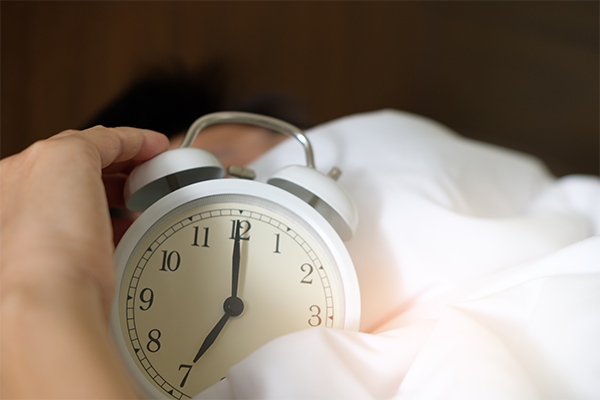
Spring Forward, Fall Back: Navigating the Time Change in Spring and Fall
Love it or hate it, the time change from Daylight Saving Time and Standard and back again can upset our normal sleep patterns. Your body's natural 24-hour sleep cycle — called your circadian rhythm — is set by sunlight. Resetting your clock doesn't mean your body is ready for a reset too.
But don't despair! The time change doesn't have to disrupt your sleep. With a little planning, you can make the transition easier on your body.
A healthy sleep foundation
The starting place for making a smooth transition lies in healthy sleep habits. You can start making good sleep choices right away and throughout the year. Healthy sleep is an important pillar of a healthy lifestyle year-round and promotes physical and mental well-being and boosts our daytime performance.To establish healthy sleep, try:
- Creating a consistent sleep schedule.
- Sleeping enough every night-that means seven to nine hours for most adults.
- Incorporating healthy eating and exercise during the day.
- Having a healthy bedtime routine, which includes avoiding alcohol, tobacco, caffeine and large meals for several hours before bedtime.
The week before the time change
Heading into the spring or fall time change with good sleep habits will make the transition easier. You may want to try adjusting your sleep schedule a little each day leading up to the time change. Your internal body clock will have an easier time adjusting to the one-hour change over a few days.
After the time change
Even if you plan ahead, you may experience drowsiness when you need to be awake, or inability to doze off when you should be sleeping. To cope with any problems after the time change:- Spend time in outdoor light in the morning to help you feel alert and reset your natural internal clock.
- Fight daytime sleepiness with a little caffeine (up to two cups of coffee) or exercise to stimulate alertness.
- Take short naps of less than 30 minutes before 3 p.m.
- Use a 1- or 3-milligram dose of melatonin 60 to 90 minutes before bedtime to help cue your body to sleep. You may need to cut a regular "adult" melatonin gummy in half.
While some find the time change difficult, with a little planning you can make sure you sail through the change with little impact on your daily — and nightly — life.
When sleep problems affect your life
Sleep problems can be triggered by time change, but there are also many sleep disorders that can affect our sleep health. Learn more about sleep issues and how you can get the help you need from the Adventist Health Portland sleep clinic.



